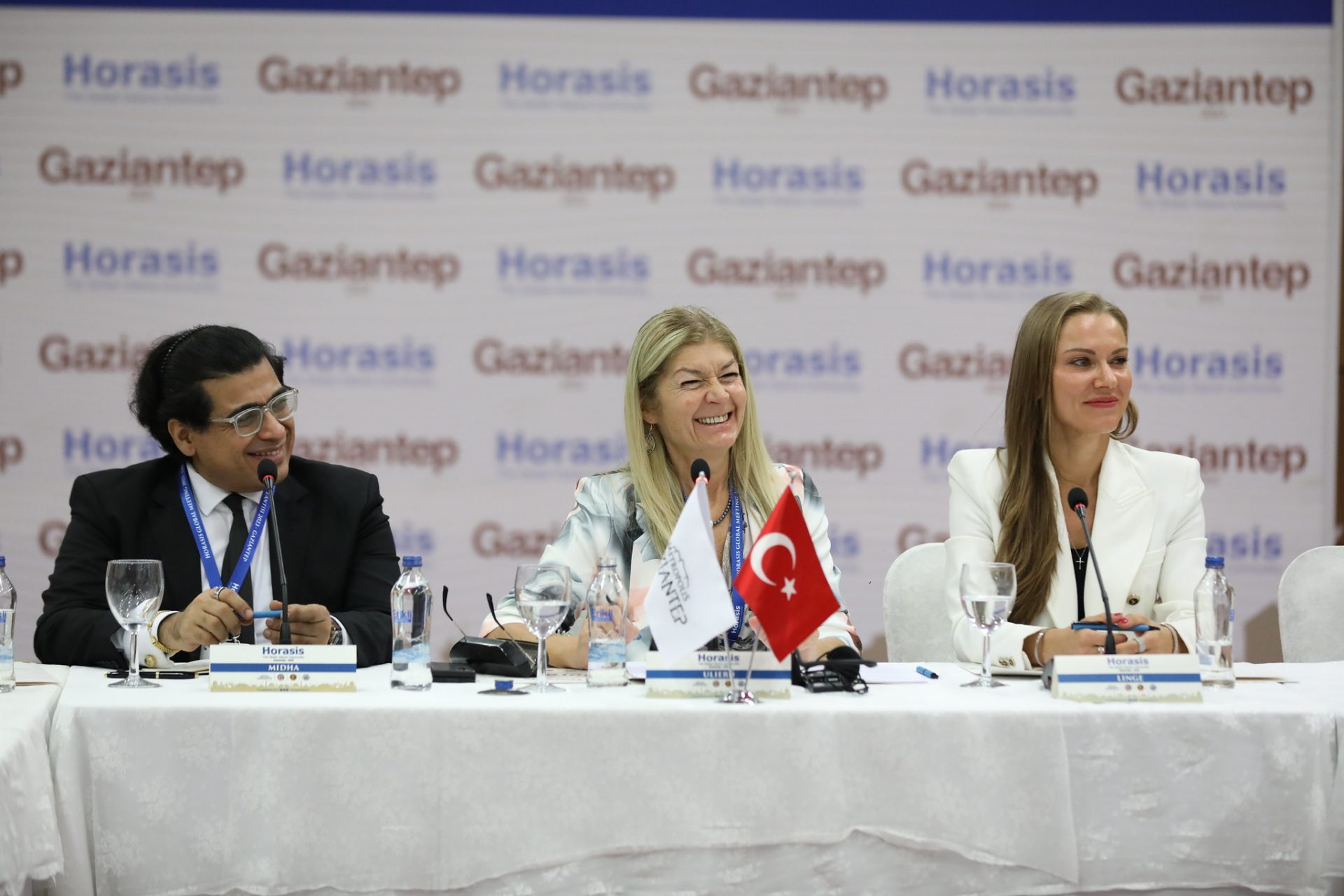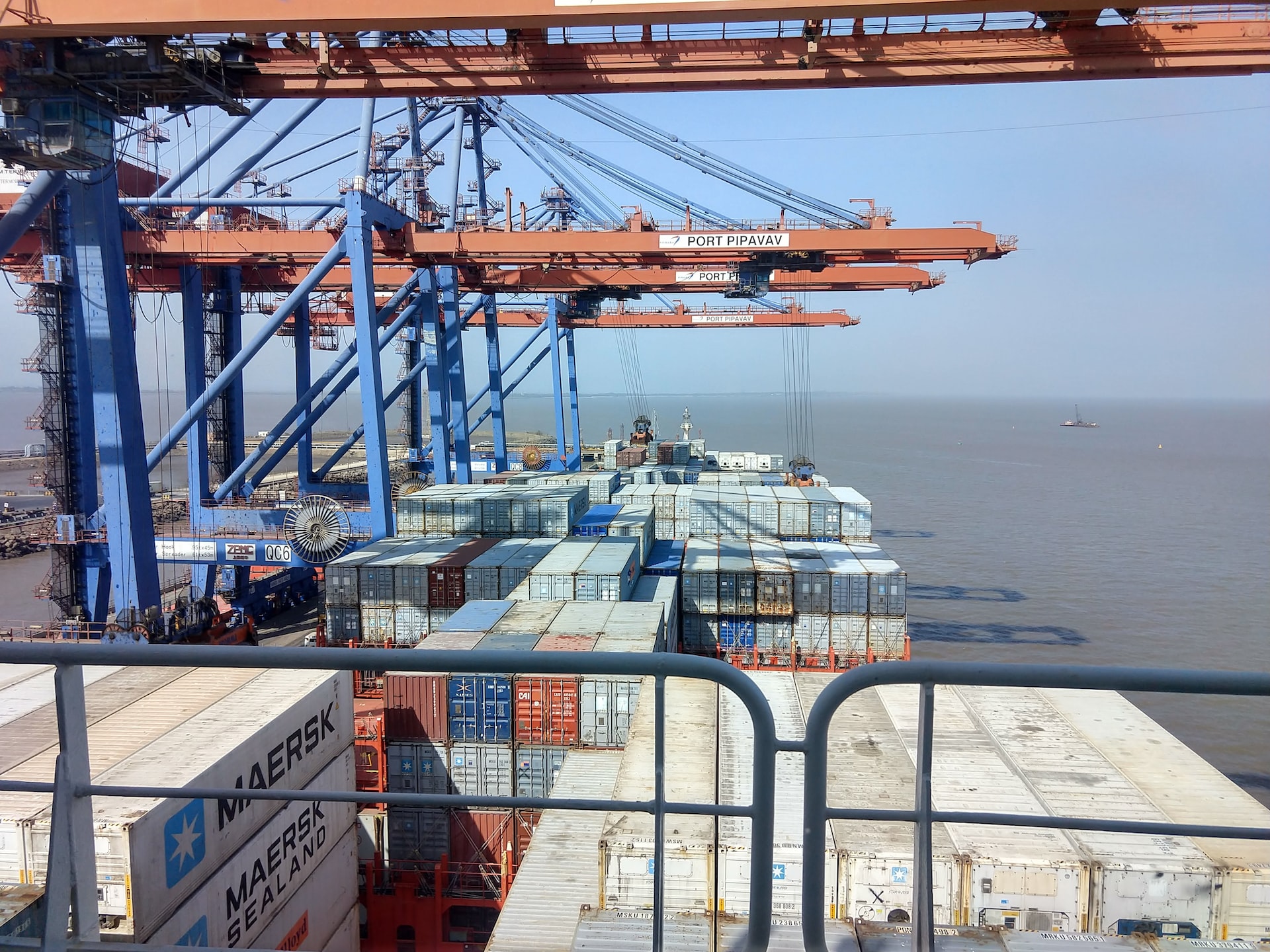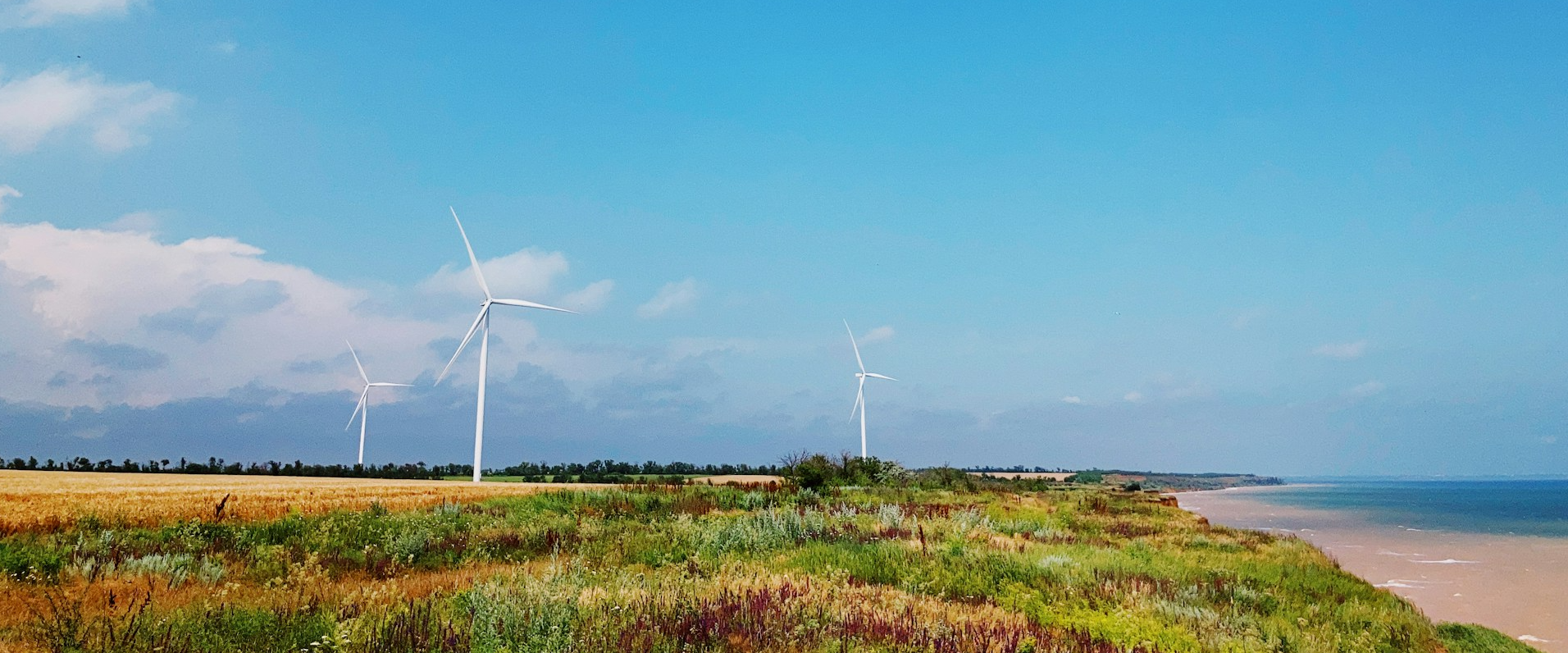Web 3.0: Transforming the Global Economy
The Web, through versions 1.0 and 2.0 have moved from static web pages to the use of the Web as a Platform permitting tech giants to dominate our usage. Web 3.0 might be based on embedded but decentralized blockchains to help manage the integration of our finances and requests for objects or knowledge. Will Web 3.0 aid policy makers in their search to regulate? Will using tokens aid all our lives? Will we cope easily as self-sovereign entities become embedded in a metaverse?
The tone for the Panel was set by our panelist Agne Linge, DeFi Researcher, DeGate, UAE in her pre-panel post: “Today, we find ourselves in a pivotal era, one that is reshaping our lives entirely. As J.P. Morgan CEO Jamie Dimon pointed out, “This may be the most dangerous time the world has seen in decades.”
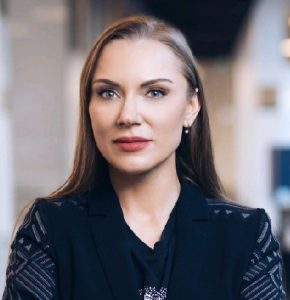
We started the conversation from the very beginning, with the provocation to the panelists:
What is Web 3 to you – please introduce yourselves while setting your work in the context of your answer. So far I also asked Chat GPT, who I must say, gave a very compelling answer: “As of my last knowledge update in September 2021, “Web 3” refers to a concept and vision for the future of the internet. Web 3, also known as the “Decentralized Web” or “Semantic Web,” is an evolving idea that aims to overcome some of the limitations and challenges associated with the current Web 2.0. Web 3 envisions a more decentralized internet where power and control are distributed among users and nodes rather than being concentrated in the hands of a few centralized entities. Blockchain technology and peer-to-peer networks play a significant role in achieving this decentralization. Web 3 is about giving users more control and ownership of their data, identities, and digital assets. Users should have the ability to control who has access to their information and how it’s used.”
Agne Linge further built on this bringing the DeFi and financial sector perspective, as a contributor and builder of Decentralized Finance ecosystems. Coming from the finance background, she was among first 100 people to get a Masters of Science degree in Blockchain and Digital Currencies. She was a Fintech consultant at the Government of Lithuania, her home country, and now lives in Dubai – the place where innovation and digital transformation is highly encouraged. You can talk to Agne Linge about all things related to blockchain, Bitcoin, Ethereum, on-chain finance and digital assets.
She further deepened into how will managing finances change with the integration of Web3 and blockchain technology and discussed the engine by which DeFi is changing the World economy, and discussed how Web 3 is enabling financial inclusion, bridging gaps and empowering communities worldwide.
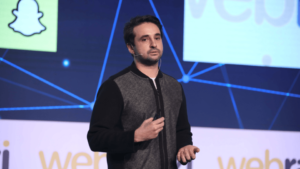
Amandeep Midha, a former CTO active in Fintech & Banking space in Denmark followed suit by addressing the provocation “What will our identities and privacy look like in this new economy powered by Web3”. He explained how Web 3 helps in protecting privacy, anonymity, and freedom with digital self-sovereign identity solutions. He discussed technologies like ring signatures , cryptocurrencies like Monero which are now banned by some countries like UAE and many more – and why bringing down of Tornado Cash was a step back in saving people privacies online. He gave the example of how last year “sanctions” narrative was excessively used to monitor and get the crypto space filled with big4 consultants and compliance managers – and how that is overall contrary to the reason why the crypto space was created in the first place.
Amandeep Midha further tackled the thorny issue of regulation of these progressive technologies that can bring so much good to “We the People”. He mentioned how he declined a recent, Nordic Blockchain Association speaking invite by writing them back that he sees their panels were filled with people from KPMG, E&Y and that Compliance Managers are now running the show, and expressed his disappointment that even crypto venture builders, also hungry for VC money and exits, are following that path and are therefore compromising the whole ethos… He further spoke about the Hypocrisy of Privacy Activism, explaining Europe’s Double Standard and the Future of Privacy and Digital Freedom.
Alper Guler, founder of QReal, Türkiye a public company focusing on creating lifelike 3D models optimized for augmented reality, virtual reality, web3, and the metaverse, spoke about how the Metaverse is impacting our lives and especially eCommerce, Fashion and buying digital items. Mehmet Fahri Can, CEO of İşNet, Türkiye, detailed his vision of what does it take to become a “digital transformation leader” of companies in the future. İşNet services are robotic process automation system, IoT, cyber security, cloud and artificial intelligence, voice, data center, internet, virtual network-VPN, and satellite services. These are all parts of the Web 3 ecosystem, given that Web 3 uses advanced web technologies such as the Internet of Things (IoT), cloud computing, and big data analytics to enable web applications to interact with a wide range of connected devices, collect and analyze large amounts of data, and deliver real-time insights and services to users. Integrating all these technologies poses the challenge of keeping this sophisticated network secure, which is one of the ambitions of IsNet.

Ahmet Eren Ozturkmen, CEO, Car Studio AI, Türkiye spoke about the transition from Web 2 to Web 3, and how his company is using artificial intelligence to improve the images of cars on the dealerships websites which he wants to bring in the metaverse soon, to also give buyers virtual opportunities for entering the car, driving it and getting the overall feel before they head to the physical store.
And finally the transition from Web 3 to Web 4 and beyond was made by Johann-Christian Schiessel, Chairman, 220.AG, Switzerland – Web 3 is dead: Long live Web 4 ! … His definition of Web 4 was echoed by Chat GPT, who answered: “Web 4.0, also known as the “Intelligent Web,” is the next evolutionary stage in the development of the Internet and the way we interact with it. The ultimate goal of Web 4.0 is to create a web that is not only more intelligent but also more intuitive, user-friendly, and easy to navigate. One of the key features of Web 4.0 is the use of advanced artificial intelligence technologies such as natural language processing, machine learning, and the semantic web.”
Mihaela Ulieru took on from here explaining how she is working with two companies which are building Web 4 as “The Internet of AI”, enabling a “Global Brain” to emerge through advanced AI technologies such as knowledge graphs. A partnership between SingularityNET and Hypercycle.ai which she advises enables a shift towards a more decentralized web, with the rise of blockchain technology and decentralized applications (dApps) that allow for greater user control and data ownership. This is possible because the data from each individual is encrypted and can be kept private while being combined and processed together with encrypted data from others. This could involve the development of new decentralized social networks, marketplaces, and other platforms that are not controlled by any single entity or organization. These technologies enable web applications to process large amounts of unstructured data and derive meaningful insights from it.
The panel conclusion was summed up by Mihaela Ulieru as “Global Collaboration for Local Impact” emphasizing Horasis’ commitment to global collaboration. She proposed the formation of international think tanks or task forces that leverage Web 3 networks for cross-border cooperation on global challenges like climate change, economic disparity, and digital divide. A platform where solutions born from the “global brain” international cooperation will be tested and implemented at a local level, ensuring that global knowledge benefits local communities. She illustrated how this can be useful in:
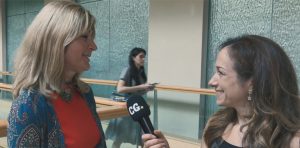
A. Crisis Response
interconnected AI agents can be pivotal in crisis response, particularly in analyzing vast amounts of data for rescue efforts, infrastructure damage assessments, and efficient resource allocation during disasters like earthquakes.
She proposed a pilot project where Web 4 is used in Gaziantep to support reconstruction efforts, serving as decentralized data processing units that help in designing sustainable buildings, planning smart city elements, or even supporting local businesses in optimizing their operations post-crisis. To achieve this, we would need to interconnect various specialized Ai agents that, could automatically contract and subcontract the most relevant other AI agents in order to achieve the tasks collectively.
The practical usage of HyperCycle and HyperAibox would create businesses within businesses and anyone willing to help at any level would be rewarded by the outcome of the collective efforts to tackle the reconstruction challenges.
B. Sustainability through Technological Empowerment
Highlighting the energy-efficient attributes of Web 3 she advocated for sustainable computing, contrasting this with the typically high energy consumption of centralized data centers. This can enable “Green AI” by tapping into into renewable energy sources, potentially partnering with local initiatives in Gaziantep or broader Türkiye to reduce the carbon footprint of AI operations.
By Mihaela Ulieru, President, IMPACT Institute for the Digital Economy, USA

